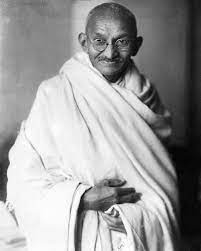
The word Buddha literally means ‘The Enlightened One’. This was the title given to Siddhartha Gautama. He became the founder of the religion called Buddhism.
Buddha was born as a prince in the 6th century B.C. in a warrior community of Nepal called ‘Sakyas’. Although brought up in great luxury, he did not show any attachment to the material delights. Even when young, he had a sensitive and philosophical temperament. Though he had everything necessary for worldly pleasures, he was somehow dissatisfied.
One day Siddhartha went out of his palace grounds on his chariot to get a glimpse of the town. On his way he saw three, sights which he had never seen before: a sick man, an old man and a dead man. These had a deep impact on his mind and made him sad and thoughtful. He could sense the eternal truths of life and realized that life was full of sorrows and suffering. He wondered if sickness, old age and death ultimately grab everyone’s life then what was the goal of life and how men could best use the comparatively short lives they had on this earth. These questions kept on hunting his mind.
One night Siddhartha left his palace in the pursuit of his goal. He was then 29 years old, married and father to a son. He left behind his wife and infant son in the palace. He spent several years studying under various teachers, but none could impart him the wisdom he was searching for. Finally, travelling from one place to another he reached a place in North India, now called Bodh Gaya. There he sat for many days under a tree in deep meditation, until suddenly one morning he had a wonderful experience of a starting vision of what he had been seeking. The light that shone in him was the enlightenment he was searching for. Buddha delivered his first sermon at Benares on the banks of river Ganges.
Gautama Buddha died at the age of 80 at Kushinagar, near Benares. After him, his followers were divided into two sects: Mahayana and Hinayana. Buddhism is now followed in Myanmar (Burma), Thailand, Sri Lanka, China, Mongolia, Korea and Japan.










 The life of Mohandas Karamchand Gandhi was a unique journey along the path of greatness. He courageously proclaimed that his life was his message. A simple man clad in a handwoven dhoti, he believed that the greatest weapon is one’s own character.
The life of Mohandas Karamchand Gandhi was a unique journey along the path of greatness. He courageously proclaimed that his life was his message. A simple man clad in a handwoven dhoti, he believed that the greatest weapon is one’s own character.

